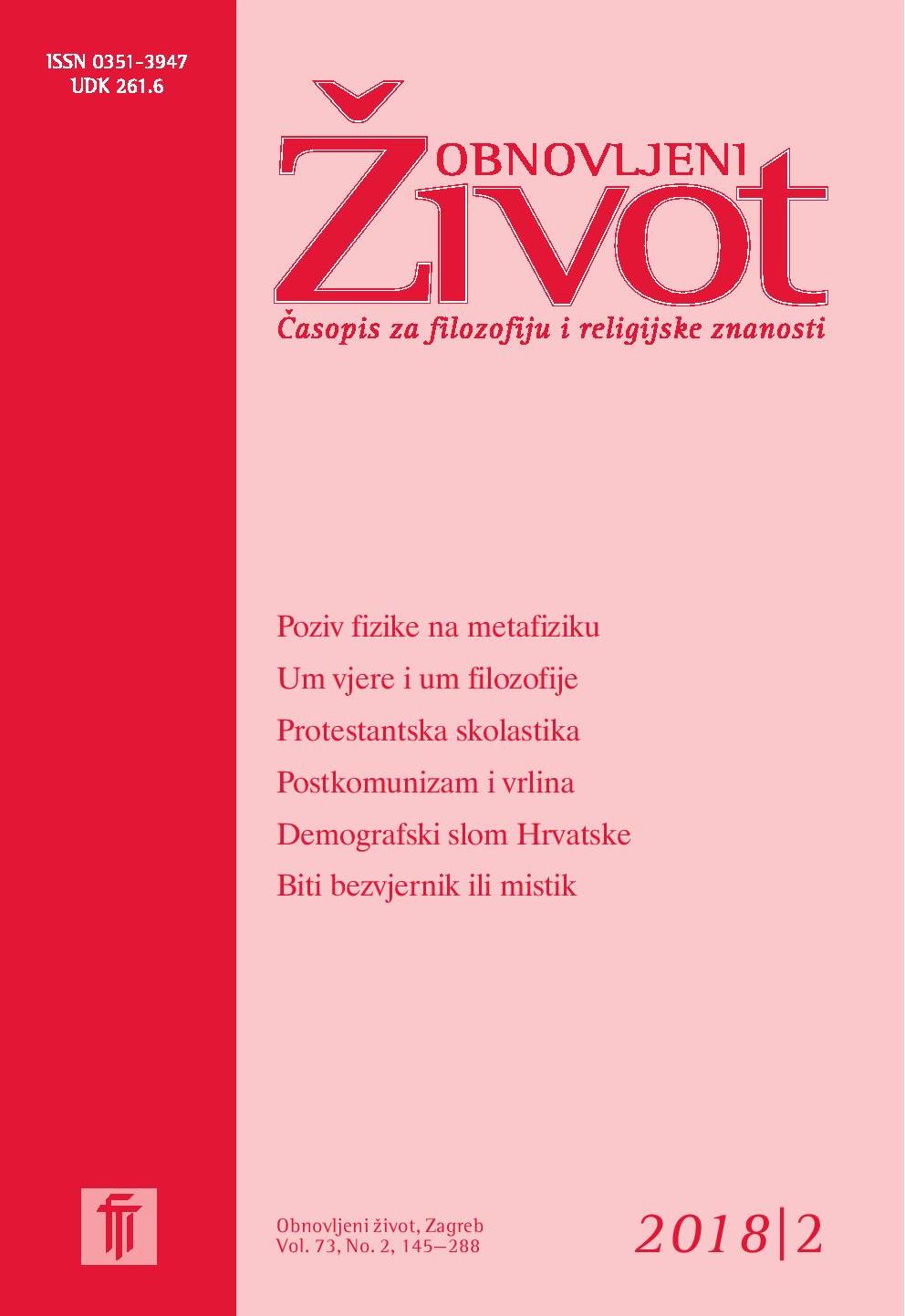The Demographic Collapse of Croatia and Europe
Keywords:
demographics, decreased fertility, infertility, contraceptive mentality, family attitudeAbstract
The demographic profile of the family in the Republic of Croatia has changed fundamentally in the last forty years. The harmonious family atmosphere in which care was taken to preserve it from generation to generation and the timeliness of marriage and childbirth are no longer the rule, for deagrarianization and urbanization have caused the family to lose its traditional appearance. When young adults are at the age of optimal biological maturity, the planning of a family is not possible for various reasons, primarily economic in nature. Moreover, it has become acceptable to separate the marriage act from procreation, and this has created a space for the manipulation of fertility. For fifty years or so, various methods of contraception have been developed and are being used, including in vitro fertilization and stem cell storage at the KRIO Institute. Surrogate motherhood is also not a novelty. Contraception enables people to postpone marriage and childbirth even until this is biologically inappropriate, consequently, numerous complications are possible in relation to conception and pregnancy follow–ups, and birth to older primiparae. Whatever technique is used in delaying childbirth, the same effect is achieved in young adults, and that is fear of having a family, fear of having a child. An anti–family atmosphere has been created because of which children are unwanted and marriage without children is normal. A contraceptive mentality has been created. Similar changes are occurring in the majority of European countries, but at various rates, and these are leading us to extinction. It is of vital importance to change thought patterns, to again adopt a pro–family way of thinking since this has been neglected. Young people must be guided at an early age toward building an awareness of the importance of starting a family, producing offspring at the proper time and also maintaining and promoting the family unit as such.
Published
Issue
Section
License
Jednom prihvaćeni članak obvezuje autora da ga ne smije objaviti drugdje bez dozvole uredništva, a i tada samo uz bilješku da je objavljen prvi put u Obnovljenom životu. Uredništvo će obavijestiti autora o prihvaćanju ili neprihvaćanju članka za objavljivanje.
Članci objavljeni u časopisu se, uz prikladno navođenje izvora, smiju besplatno koristiti u obrazovne i druge nekomercijalne svrhe.


